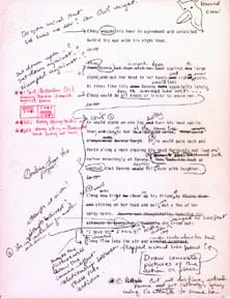Start Marketing NowStart your marketing campaign the moment you type ‘The End’. In fact, you might be better off to start marketing your story even before it is finished. The essential first step is to establish yourself online with an author website if you have not already done so; I find that both Weebly and Wix are excellent options for building a basic site that looks professional. If you buy your own domain it may include an email, depending on what package you purchase. If not, it is important to get a professional email through which you can correspond with agents, publishers, and future readers. Start creating a mailing list early on as this will be your most essential marketing tool once the book comes off the printing press. Most authors I know use MailChimp which is slick and secure; it also happens to be free until you get over two hundred and fifty subscribers. While social media presence is looked upon favourably by agents and publishers, I suggest choosing one platform and focussing on it exclusively. Start creating a mailing list early on as this will be your most essential marketing tool Edit, Edit, Edit
I suggest searching through lists of editors provided by writers unions (The Federation of BC Writers has an extensive list of suggestions) or through freelance work sites like Upwork. While editors on social media may advertise significantly cheaper rates, considerations of accountability, quality assurance, and tracking payments leave freelance websites and vetted professionals as the prefered options. Get Beta-ReviewsNo matter how deeply your story resonates with you, it is not ready to send to agents or publishers until at least a few people have read it with a critical eye. This is difficult to achieve as reading a full length manuscript of 80-100 thousand words is no small task for most individuals. Your spouse or partner is likely invested in your success and so may provide very detailed feedback about things like spelling errors and story inconsistencies. ...your story [...] is not ready to send to agents or publishers until
Write a Stellar PitchWriting is, of course, about ideas and characters, about transformation and passion, about discovery and adventure; most of all it is about telling a truly great story. However, agents and publishers are not in the passion business. They are selling books. To customers. For money. It is very important to keep this in mind when you write your pitch. However, agents and publishers are not in the passion business. They are selling books. To customers. For money.
A few ‘Do Nots’:
A few ‘Dos’:
Set up a Query Schedule
Persistence is key at this stage. A long term investment of time and energy wins over short bursts of query flurries. In addition to consistency, target your queries and craft each one to suit the agent or publisher your are contacting. Two or three well-researched queries are better than ten generic emails which I can assure you will be duly ignored. I suggest starting with a bit of research on who represents or publishes your favorite authors or those who write in a similar genre similar. Recognize also that there are many (many, many, many) people trying to achieve the dream of publication. Therefore, each query you send must be unique and memorable if it is to be worth sending at all. Each query you send must be unique and memorable if it is to be worth sending at all. Start Writing the Sequel
Consider this: What if your book does get published? What if it is a success? What then? If all you’ve done for six months or a year is work on all the steps listed above then you may have sunk your own ship. Once readers hear of you they are waiting for the next book in the series, the next stage of the journey, or the next big idea from their new favorite author. You don’t have another year or two to write that story. Fans, while wonderfully supportive, are not known for being a patient crowd. You don’t have another year or two to write that story. You need another manuscript ready for your agent or publisher as soon as your first book starts to attract attention. At this point, you have put so much time and energy into getting the momentum of your writing career started that you must keep it going. And so the cycle continues. A Final WordIf all this seems overwhelming, I unfortunately must admit that it is. However, one small reassurance is that in writing your next book and the one to follow that, you have already established a fanbase, a mailing list, and an online presence. Getting reviews will get easier as you become known in a wider range of literary circles. Most sequels sell far better than the first book in the series (as long as the first book was well received). Last, but not least, know that while there are many barriers to overcome on the path to publication, no one can stop you from writing your story. So muster your courage and write it. No one can stop you from writing your story. So muster your courage and write it. Join Joshua's mailing list for articles on writing, featured author Q&As,
and updates on his Norse-themed fantasy series, The Saga of Torin Ten-Trees.
0 Comments
Leave a Reply. |
AuthorJoshua Gillingham is an author, editor, and game designer from Vancouver Island, Canada. Archives
April 2022
Categories
All
|







 RSS Feed
RSS Feed
